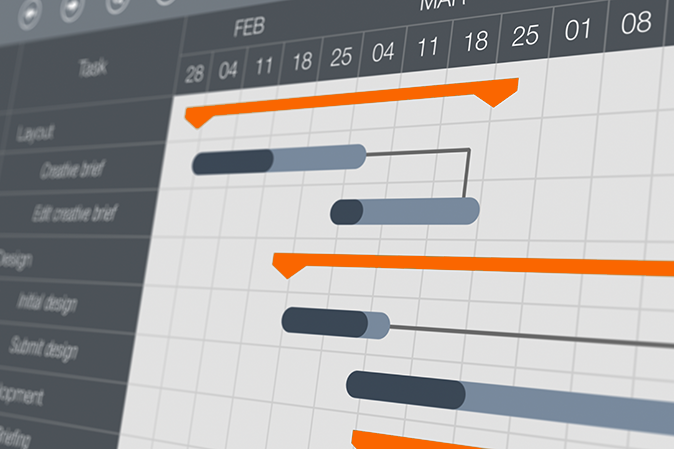Welcome! Use code NEWYEAR26 to unlock 25% off all expert-led CLE, CPE, and Professional Skills webinars, and 10% off annual passes.
About the Course
Introduction
This CLE webinar will explore the complex legal landscape of web scraping in the context of AI development and privacy and offer actionable takeaways for businesses that engage in web scraping, are subject to scraping, and/or use scraped data. The panel will examine relevant U.S. laws and case law in the context of the global regulatory framework to help contextualize the unfolding dynamics of scraping and its role in AI development and privacy compliance. The panel will also provide practical tips for counsel when advising clients on related contracting measures.
Description
"Data scraping" or "web scraping" is the automated finding and extraction of data from websites and other online sources. Data scraping is used for marketing, research, sales insights, academia, and archivists. Scraping is now supercharged by algorithms designed to derive "intelligence" from massive datasets of scraped data and 'learn as they go' to improve the algorithms' overall performance.
Numerous lawsuits and regulatory actions challenge the legality of web scraping, particularly the 'training' of generative AI systems using scraped data. Many times, the source of data sets used for AI system development have unknown provenance, complicating risk management efforts. Increasing attention to risks of minors and other sensitive data use and the implications of automated processing compound risk decision making.
Whether engaged in scraping or developing AI using scraped data, assessing the legality of web scraping involves untangling overlapping privacy, AI, consumer protection, contracting, tort, and other laws, as well as active monitoring of case law and regulatory activities.
Listen as our authoritative panel explores the current web scraping legal landscape and provides practical risk management tips.
Presented By

Mr. Friel is a thought leader in digital media, IP, data privacy and protection, and consumer protection law, with over three decades of relevant experience to address the intersection of law and technology. Having served as a GC for several years in the late 1990s before returning to private practice, Mr. Friel has the necessary expertise to advise clients on making practical and informed business decisions, and help companies and entrepreneurs navigate the complex opportunities created by disruptive technology. With his in-house and private practice experience, he assists clients with creating data inventories, and information governance and data privacy and security programs; developing and implementing policies and procedures for providing consumer data privacy transparency, choice and access; drafting and negotiating privacy and data security provisions for commercial contracts; evaluating privacy impact assessments; addressing data privacy and security issues in merger and acquisitions transactions; structuring personal data transfer arrangements (including cross-border, intracompany, sales and licenses, and disclosures that are exempt from, and/or comply with, certain legal restrictions); drafting and revising external and internal privacy and data security policies and procedures; and addressing complex intellectual property and consumer protection issues related to digital media, advertising and commerce, such as in connection with the development and deployment of artificial intelligence, tailored and targeted advertising practices, and digital transformation and data commercialization strategies. Mr. Friel is a sought-after speaker and is affiliated with UCLA as an assistant professor in a multidisciplinary project at the Graduate School of TV, Film and Digital Media, and is an adjunct professor at Loyola Marymount School of Law.

Ms. Jacobson is a partner in the Data Privacy, Cybersecurity & Digital Assets Practice. She offers practical and tactical counsel on privacy and cybersecurity compliance strategies, data breach response, technology transactions and marketing initiatives for national and multinational organizations. Ms. Jacobson assists clients with the design and development of privacy-sensitive policies for the collection and use of personal data. She regularly advises businesses on the privacy and cybersecurity aspects of environmental, social and governance (ESG) programs, ethical data use, machine learning and artificial intelligence, vendor contracting and management and business sales, combinations and acquisitions.

Ms. Ricci is responsible for providing advice on AI, privacy operations, technology contracts and secondary market transactions. BECU is currently the country’s fifth-largest credit union, with nearly 1.4 million members and $29 billion in assets. Ms. Ricci was formerly the chief legal officer at two prior tech companies and one financial services company and has held legal, risk and business roles at large financial institutions. The opinions expressed in this CLE presentation are the presenter’s own and do not reflect the view of BECU.
-
This 90-minute webinar is eligible in most states for 1.5 CLE credits.
-
Live Online
On Demand
Date + Time
- event
Wednesday, October 8, 2025
- schedule
1:00 p.m. ET./10:00 a.m. PT
I. Introduction to data scraping
II. Data scraping and AI development
III. Data scraping and privacy and data protection laws
IV. Data scraping and AI laws
V. Contracting for risk management
VI. Actionable takeaways
The panel will discuss these and other key issues:
- What are the privacy and data protection implications of web scraping?
- How do AI laws impact scraping?
- How can organizations minimize liability under privacy laws when using scraped data with AI systems?
- What steps can companies take to protect against unauthorized scraping?
- How can organizations mitigate their exposure to web scraping risks by strengthening contractual terms with third parties?
Unlimited access to premium CLE courses:
- Annual access
- Available live and on-demand
- Best for attorneys and legal professionals
Unlimited access to premium CPE courses.:
- Annual access
- Available live and on-demand
- Best for CPAs and tax professionals
Unlimited access to premium CLE, CPE, Professional Skills and Practice-Ready courses.:
- Annual access
- Available live and on-demand
- Best for legal, accounting, and tax professionals
Unlimited access to Professional Skills and Practice-Ready courses:
- Annual access
- Available on-demand
- Best for new attorneys
Related Courses

Impact of New EU Data Act on U.S. Businesses: Extraterritorial Reach, Compliance Risks, Operational Challenges
Wednesday, March 11, 2026
1:00 PM E.T.
Recommended Resources

Explore the Advantages of Consistent Legal Language
- Learning & Development
- Business & Professional Skills
- Talent Development

The Power of Project Management: Using the 80/20 Rule in E-Discovery
- Legal Technology
- E-Discovery

